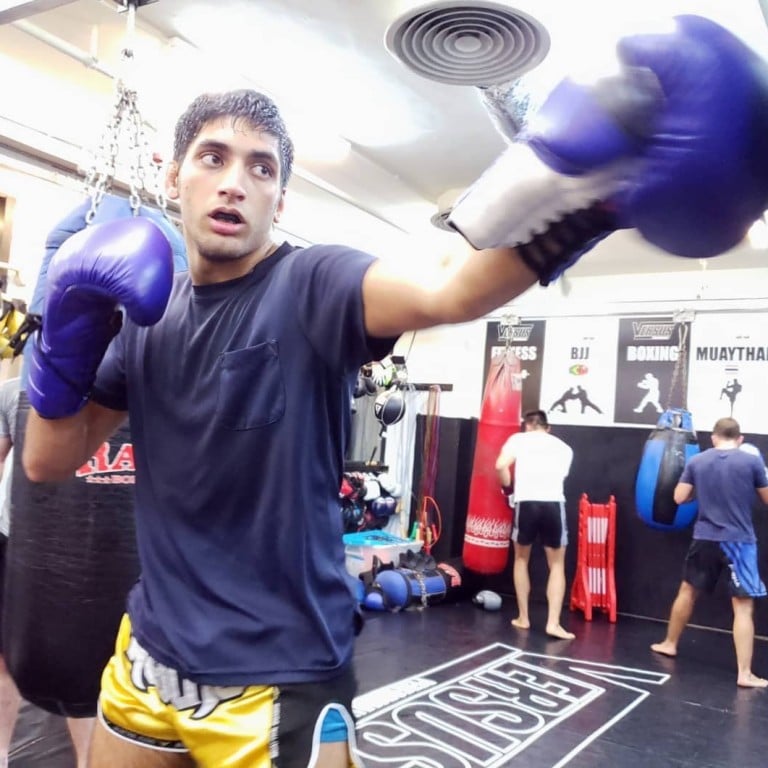
Why Indian-Hongkonger Rehaan Lulla persists in ever-struggling Muay Thai – ‘I couldn’t imagine a life without fighting’
- The 22-year-old, who overpowered his opponent in KF1 event in Tai Po on Thursday, trains through university studies and a pandemic
- ‘Nobody knows who the best athletes are unless you’re in the sport or are a diehard fan’ said Lulla of the local Muay Thai scene
Serial injury risks, lack of government support and virtually no financial incentive – the pursuit of a Muay Thai career in Hong Kong can appear perplexing.
Yet after months of training and sacrifice during a pandemic in notoriously cramped Hong Kong, Rehaan Lulla says he could not imagine a life without “the art of eight limbs”.
“Honestly, the whole process is just a lot of fun. Specifically training for particular opponents, and sometimes you don’t even know who you’re going to fight that night if it’s a tournament. There are a lot of intangibles involved and there’s always a different story from every fight – no two are the same. I couldn’t imagine a life without fighting,” said the Indian-born, Hong Kong-raised 22-year-old.
“Barbarian” Lulla overwhelmed former multiple Hong Kong champion Pun Ka-long at Fu Tak’s two-night KF1 event in ATV Studio in Tai Po on Thursday. He was the only non-ethnic Hong Kong fighter on the main card, with commentators rather bluntly praising “the Indian guy’s overwhelming power and swift defence”.
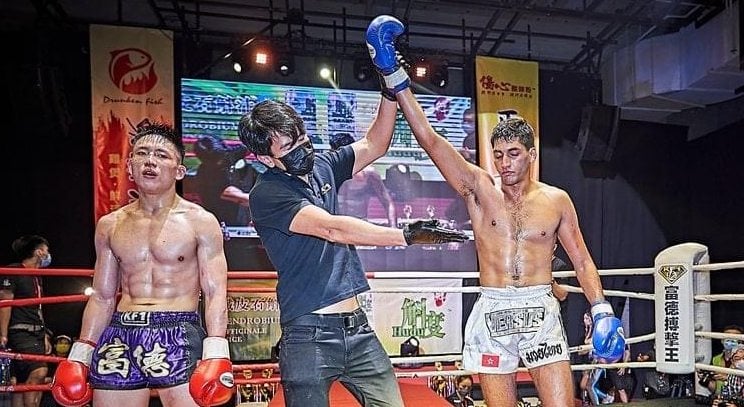
Given the disruptive closing-reopening cycle of the city’s gyms, Lulla and his Versus Performance team spent most of last year grinding in makeshift training areas.
The Hong Kong University of Science and Technology student and West Island School alumni had faced the same opponent years earlier in the Hong Kong Secondary School Muay Thai Boxing Championships. Lulla edged the first encounter, but the stakes were much higher this time.
“We fought when we were both 17. It was tough and we were both wearing body protectors, headgear, knee and elbow pads … this time was full contact, totally different,” said Lulla.
“As you get older you definitely mature as a fighter. You realise what you have to do to win fights with your attributes. For the longest time I never really used my reach properly, even though I have really long arms and legs. I was just going forward and punching. I’ve worked a long time on using my speed and reach in camp.”
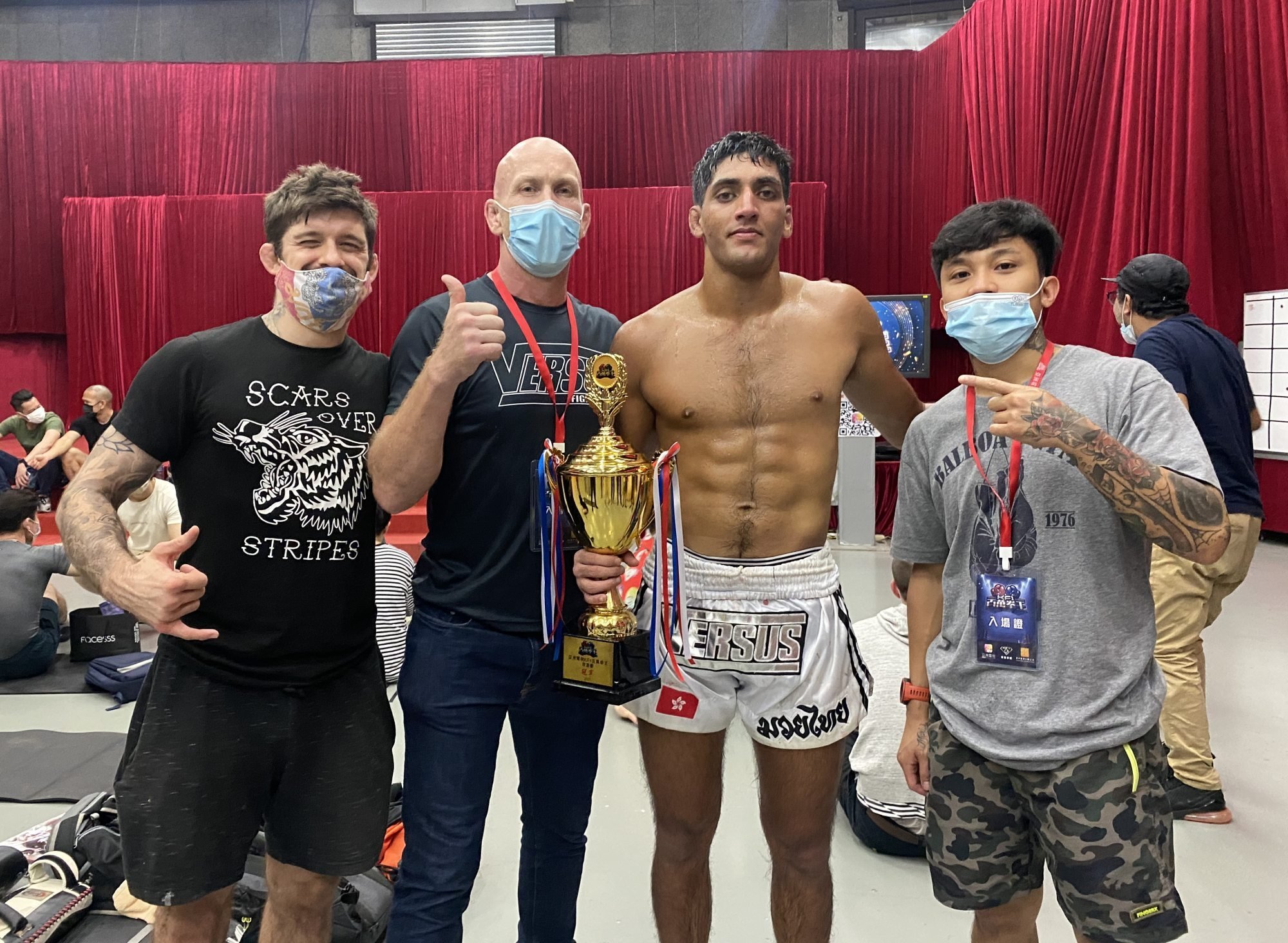
Lulla was introduced to the martial arts world at 11. He had become less passionate about his rugby and cross-country clubs and instead started boxing at Impakt, later moving to ChrisCollinsACTION and Apex Muay Thai Gym before finding a home at Versus.
“There was not a lot of training for younger fighters in Hong Kong – you kind of had to get into it later on. I decided to take it more seriously at 14, but it was really hard to get fights as a teenager.
“At Versus, I could train everything I wanted to in one place and be more consistent in training MMA,” said Lulla, who has previously entered regional boxing, grappling and shooto events and did not rule out MMA in future.
Having blitzed his way through school-level championships, Lulla quickly felt a huge climb in competition.
“It started getting a lot harder at the junior and Hong Kong championships. I didn’t win either. It’s been a tough road,” he said. “But my mentality has changed since then. I put a lot less pressure on myself and try not to lose the fun side of it.”
Lulla, who was born in New Delhi before moving to Mumbai, then relocating to Taiwan and Hong Kong for his father’s work, is well aware of the equally important obligation to “make it” outside the ring. He is confident in juggling the two.
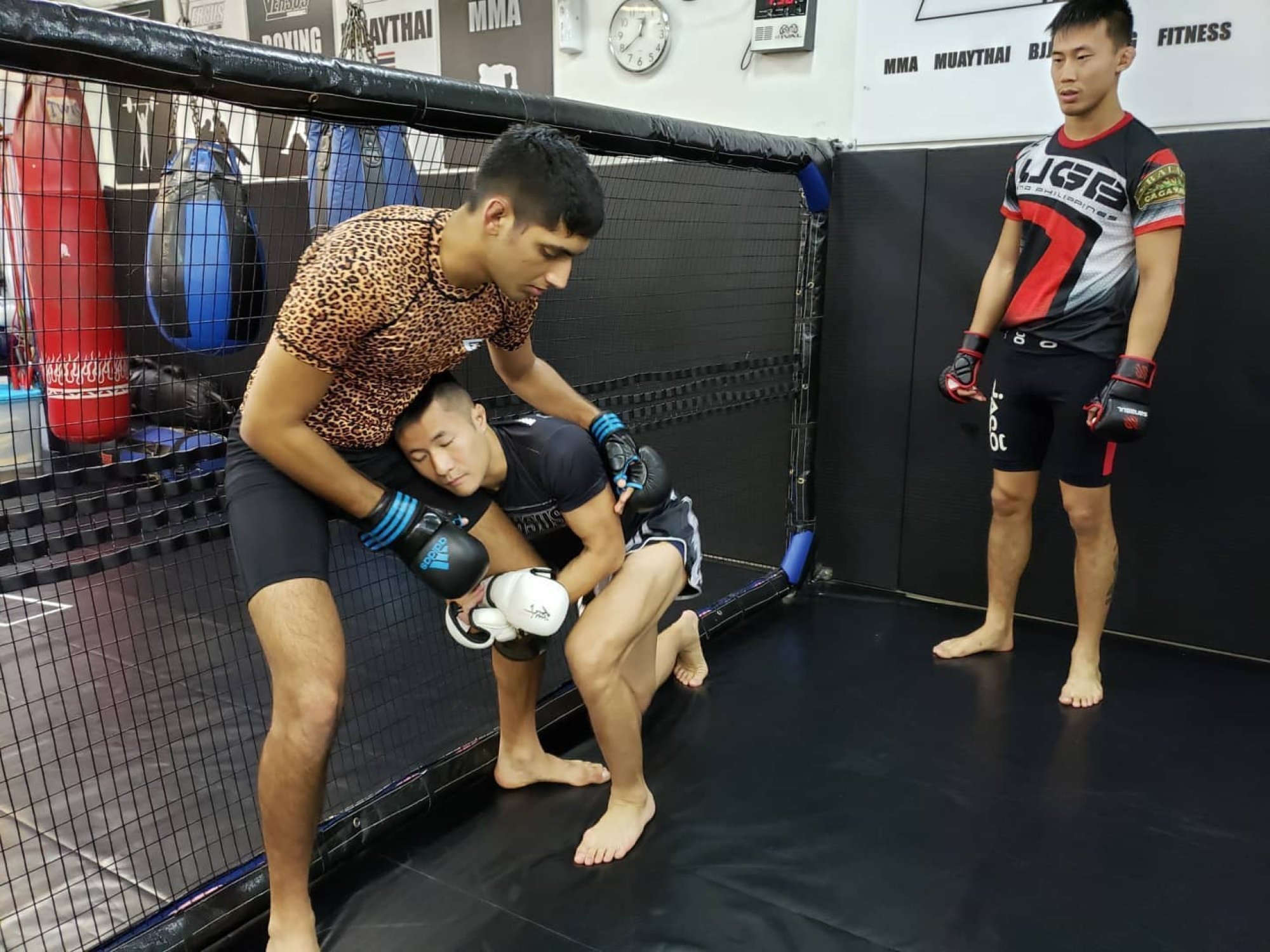
“No, not at all [Muay Thai does not run in the family],” he said, laughing. “My mum obviously wants me to quit – she even told me today that this should be the last fight and I should focus on my career. But I feel I can do both and I have enough time to do so,” Lulla said.
“My dad lets me do what I want as long as I do what I have to in other aspects in life: studying, working, internships, part-time jobs. He wants me to be responsible more than anything. If I focused all my time on fighting, he’d probably want me to quit as well.
“My dad really wanted me and my younger brother to play a lot of sports. I remember wanting to quit rugby and he said ‘no, you have to compete in at least some sports’. So I ended up quitting everything for fighting. Now it’s probably too late. He got me into it, can’t blame me!”
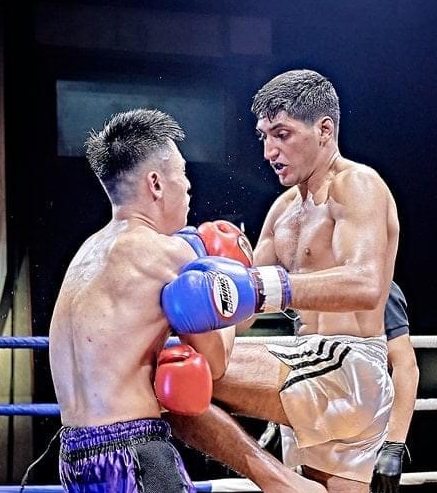
The lessons of absolute humility and sportsmanship unique to combat sports can be applied to everything. Traditionally, Hong Kong’s Muay Thai gyms are found tucked away in rundown industrial buildings or commercial centres. But that is also the beauty of it.
“Sports in Hong Kong is generally not taken seriously. Fighting is not an elite sport here either, so if you take part you’re doing it purely for the enjoyment and perhaps the hopes of one day competing overseas or against someone visiting Hong Kong,” he said.
“Muay Thai is a lot more low-key than the Conor McGregors and Israel Adesanyas of MMA. Nobody knows who the best athletes are unless you’re in the sport or are a diehard fan. A lot of them are really skilled and very tough.
“These industrial buildings are the places that produce the champions and the toughest fighters. Those really small places, that’s where you get the actual competitors.”

